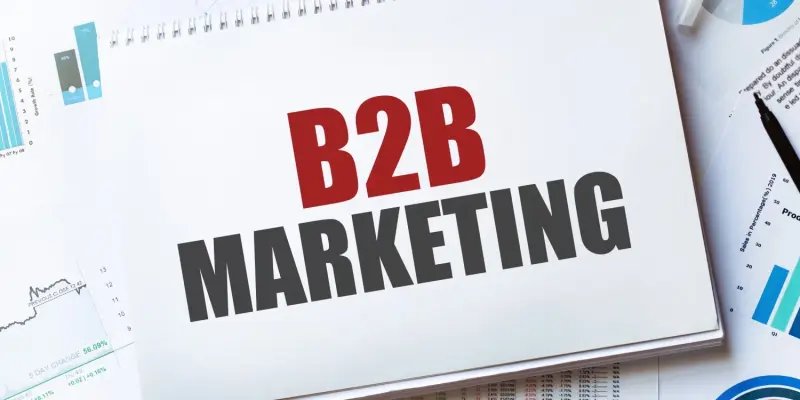The landscape of business-to-business (B2B) marketing has undergone significant transformation, driven by technological advancements. One of the most profound shifts is the integration of artificial intelligence (AI) into marketing automation systems, streamlining processes and enhancing efficiency. This exploration by Act-On Software, in partnership with Ascend2, sheds light on how marketing professionals are adapting and succeeding. The study underscores a 96% success rate among B2B marketers leveraging marketing automation, emphasizing its critical role. Despite positive outcomes, challenges persist in data quality improvement and strategic implementation. AI has emerged as a cornerstone, revolutionizing audience identification, reporting, and personalization.
Success and Challenges in Marketing Automation
Evolution of B2B Marketing Strategies
B2B marketing professionals have increasingly embraced marketing automation solutions, demonstrating success rates that highlight the technology’s pivotal role. The survey reveals that 96% of respondents report success due to automation, signifying its importance in contemporary marketing strategies. However, while the adoption is widespread, marketers face challenges that must be addressed. Data quality improvement emerges as a significant priority, cited by 44% of respondents. The emphasis on enhancing data integrity displays the ongoing need for precise and reliable information to drive decision-making. Strategic implementation, with 51% acknowledging challenges, indicates the necessity for careful planning and execution to unlock the full potential of automation systems.
The Role of AI in Enhancing Automation
AI integration within marketing automation systems has ushered in new opportunities for marketers to optimize their strategies. AI audience identification, at 43%, highlights its significance in pinpointing target demographics and refining campaign success. This feature allows marketers to effectively reach potential clients, maximizing engagement and conversion rates. Additionally, AI-driven reporting and personalization are making notable impacts, with usage rates of 41% and 36%, respectively. These AI capabilities facilitate the generation of detailed insights, while molding personalized experiences for clients. Together, they foster a deeper understanding of customer dynamics and tailor experiences to individual preferences, driving increased satisfaction and loyalty.
Future Budgetary Trends and Strategic Optimization
Increasing Investment in Marketing Automation
Budgetary trends within B2B marketing reveal rising investments in marketing automation, with 75% of marketers planning to expand their budgets. This trend underscores the competitive advantage offered by these advanced systems as they continue evolving with AI functionalities. The significant allocation towards automation signals marketers’ recognition of its value and efficiency, allowing them to streamline processes and focus on innovation. Such investments enable marketers to leverage cutting-edge tools to refine strategies, improve targeting, and measure campaign performance. The emphasis on budget growth illustrates a forward-thinking approach, ensuring that teams are equipped to respond to market demands efficiently.
Leveraging Advanced Tools for Strategic Enhancement
Strategic optimization remains a priority for marketing teams, as noted by Jeff Day, CMO of Act-On. Marketers are encouraged to capitalize on advanced automation tools to refine strategies and enhance data quality. By addressing existing challenges, they can elevate their performance, optimizing processes that directly influence outcomes. The report provides a roadmap for marketing professionals, focusing on leveraging AI to fine-tune strategies and achieve desired results. Act-On’s commitment to innovation ensures that marketers have access to robust solutions designed to meet the evolving needs of the industry. As teams align their efforts with technological advancements, the potential to secure customer success becomes increasingly attainable.
AI’s Transformative Power in Marketing
The Continuous Integration of AI Features
The scope of AI in B2B marketing automation is vast, with ongoing incorporation of sophisticated features designed to enhance efficiency and effectiveness. AI is redefining traditional marketing practices, offering dynamic ways to connect with clients, analyze data, and personalize interactions. AI-driven insights offer unmatched precision in identifying and engaging audiences, thus establishing deeper and more meaningful customer relationships. Moreover, AI’s ability to automate complex tasks reduces operational friction and accelerates decision-making processes. As AI tools continue to evolve, marketing teams are positioned to benefit from increasingly sophisticated solutions that align closely with their strategic objectives. The integration of AI presents vast possibilities to enrich marketing automation, fostering innovation and competitive differentiation.
Strategic Use of AI to Foster Growth
B2B marketing experts are increasingly turning to marketing automation solutions, underscoring its crucial role in their strategies. A recent survey reveals that 96% of participants attribute their success to the implementation of automation, highlighting its significance in modern marketing approaches. Although adoption is prevalent, numerous marketers encounter specific hurdles that require attention. Enhancing data quality stands out as a major priority, with 44% of respondents emphasizing this need. This focus underscores the essential requirement for accurate and trustworthy data to inform decision-making. Additionally, 51% mention challenges related to strategic implementation, stressing the importance of meticulous planning and execution to fully leverage automation systems. These insights reveal a landscape where achieving precision in data and developing effective strategies are vital for maximizing the capabilities of marketing automation tools, ensuring they are truly transformative in driving business outcomes.

